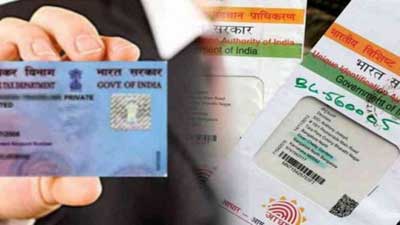One Person Company

Under section 2(62) of companies act 2013 a new concept was introduced and that was one person company which has only one person as a member. One Person Company is a separate legal entity from its promoter, offering limited liability protection to its sole shareholder, while having continuity of business and being easy to incorporate.
One Person Company must be converted into a Private Limited Company if it crosses an annual turnover of Rs.2 crores and must file audited financial statements with the Ministry of Corporate Affairs at the end of each Financial Year like all types of Companies. But, OPC cannot be incorporated or converted into Section 8 Company (i.e. company with charitable objects, etc.) or carry out non-banking financial activities, including investment in securities of any body corporate.
An Indian resident (i.e. have stayed in India for at least 182 days during the immediately preceding FY) can incorporate OPC. However, one of such person cannot form more than one OPC.
Advantages
SEPARATE LEGAL ENTITY
OPC is a separate legal entity and capable of doing everything that an entrepreneur would do.
EASY FUNDING
OPC can raise funds through venture capital, financial institutions, angel investors, etc. An OPC can raise funds thus graduating itself to a private limited company.
MORE OPPORTUNITIES, LIMITED LIABILITY
One of the advantages of One Person Company is that it has more opportunities, limited liability since the liability of the OPC is limited to the extent of the value of the share you hold, the individual could take more risk in business without affecting or suffering the loss of personal assets. It is the encouragement to new, young and innovative start-ups.
BENEFITS
An OPC can avail the various benefits provided to Small Scale Industries like the lower rate of Interest on loans, easy funding from the bank without depositing any security to a certain limit, manifold benefits under Foreign Trade policy and others. All these benefits can be boon to any business in initial years.
TAXATION
Any remuneration paid to the director will be allowed as deduction as per income tax law, unlike proprietorship. Other benefits of presumptive taxation are also available subject to income tax act.
CREDIT RATING
The OPC with bad credit rating may even get the loan. The credit rating of OPC will not be material if the rating of OPC is as per norms.
SINGLE OWNER
You, only the owner helpful in quick decision-making, controlling and managing the business without following any elongated processes and methodologies as adopted in other companies. The sense of belonging inspires to grow the business further.
Minimum Requirements
- Minimum 1 Shareholder
- Minimum 1 Director
- The director and shareholder can be the same person
- Minimum 1 Nominee
- Letters ‘OPC’ to be suffixed with the name of OPCs to distinguish it from other companies.
Get Expert Assistance
Company Registration
Documents Required For Registration
Identity And Address Proof
Aadhar Card, Aadhar number is now a necessity for applying for any registration in India. Also, income tax return can only be filed if the person has linked his PAN card with Aadhar number.
Address proof will be required for all directors and shareholders of the company to be incorporated. For Indian nationals, PAN is mandatory. For foreign nationals, apostilled or notarised copy of passport must be mandatorily submitted. Residence proof documents like bank statement or electricity bill should not be more than 2 months old.
All documents submitted must be valid

Registered Office Proof
- Register office of all companies must be in India .If it is a Rented Property, Rent agreement and NOC from a landlord. If it is a Self-owned Property, Electricity bill or any other address proof.
- Documents submitted must be valid and not more than 2 month old.

Process
Name Approval Application
Name Applications Under RUN Will Be Processed By Central Registration Centre (CRC). The Name Approval Is Subject To Comprehensive Check By The Central Registration (CRC) And Thereafter Approval Or Rejection Shall Be Communicated By E-Mail To The Applicant. The Name Approved Under RUN Process For New Company Registration Is Valid For A Period Of 20 Days From The Date Of Approval. In Case Of Change Of Name Of An Existing Company, The Name Shall Be Valid For 60 Days From The Date Of Approval. RUN Company Name Application Fee Is Rs.1000.00. This Fee Is Additional To The Regular Fee To Be Paid Through SPICE Application For Company Registration. RUN Company Name Application Mandatory Process. Alternatively, The Applicant Can Apply Company Name Through The Integrated SPICE Application For Company Registration. In That Case, We Can Submit ONLY ONE Name For Seeing Approval. However, There Are TWO Changes Of Re-Submissions For SPICE Application. So, Effectively The Applicant Can Submit FOUR NAMES (1-Original Submission + 1 Re-Submissions) For Approval Without Any Extra Cost.
DSC (Digital Signature)
A Digital Signature Is Electronic Signature, Which Is In The Form Of Codes. It Is Used For Signing The Electronic Forms, Filed With ROC For Incorporation Of Company. Digital Signature Cannot Be Used In Physical Documents. The Company Registration In Procedure Is Completely Online And Hence It Requires Digital Signature To Incorporate A Company. It Is Mandatory For Subscribers And Directors To Have A Valid DSC (Class II Or III). You Can Get A DSC From Us In Just One Day. If You Already Have A Digital Signature, Then You Can Use The Same But Check For Its Validity Since Agencies Issues DSC’s With Either One Or Two-Year Validity.
Apply For Din (Director Identification Number)
Director Identification Number Is A Unique Number Which Is Given To Existing Directors Of Incorporated Companies.
Rule 2(D) Of Companies (Appointment And Qualification Of Directors)Rule 2014 Defines Director Identification Number As An Identification Number Which Is Allotted By The Central Government To Any Individual, Intending To Be Appointed As Director Or To Any Existing Director Of A Company For The Purposes Of Identifying As A Director Of A Company.
The Following Points Are The Purpose Of Using DIN
- It’s A Unique Identification Number.
- The Entire Database Of The Director Can Be Found Using DIN
- The Name Of The Director, Address And PAN Number Can Be Found.
- The Past Companies In Which He Had Worked And Present Company In Which He Is Working Can Be Found.
- Once Obtained DIN Number, The Director Can Use The Same For Life Irrespective Of The Company He Works In. A Change In The Company Doesn’t Change The Director Identification Number.
Form Spice (Inc-32) Moa (Inc-33), Aoa (Inc-34), Agile
Form INC-32 Must Be Accompanied By Supporting Documents Including Details Of Directors & Subscribers, Affidavits, Declarations, Identity Proof, Address Proof, MoA And AoA Etc. Once The EForm Is Filed, Its Processed By The MCA’s Central Processing Centre.
If Found Complete Company Would Be Registered And CIN Would Be Allocated. Also DINs Gets Issued To The Proposed Directors Who Do Not Have A Valid DIN. Maximum Three Directors Are Allowed For Using This Integrated Form For Filing Application Of Allotment Of DIN While Incorporating A Company. Once All The 4 Forms Ready With The Applicant, Upload All Three Documents As Linked Form On MCA Website And Make The Payment Of The Same.
- In Respect Of Non-Individual First Subscribers Who Are Based Outside India, Pdf Attachments Of Apostilled MOA And AOA Shall Be Attached With SPICe (INC-32).
- SPICe AoA (INC-34) Has Facility For Adding, Modifying, And Deleting Articles. Thus If Additional Article Is Required, We May Add The Same
- DSC Is Mandatory For All Subscribers And Witnesses In EMoA (INC-33) And EAoA (INC-34). EMoA And EAoA Shall Be Used Only Where The Maximum Number Of Subscribers Do Not Exceed 7. In Case The Numbers Of Subscribers Are More Than 7, MoA And AoA Shall Be Attached Manually To SPICe And DSC Is Not Mandatory In Such Cases.
- Two Resubmissions Are Only Permitted In The E-Form
- SPICe EMoA And EAoA Have To Be Uploaded As ‘Linked Forms’ To SPICe (INC-32).
- The Ministry Of Corporate Affairs (MCA) Has Notified An E-Form Known As AGILE – Application For Registration Of The Goods And Services Tax Identification Number (GSTIN), Employees’ State Insurance Corporation (ESIC) Registration And Employees Provident Fund Organization (EPFO) Registration.
- GSTIN Application Via E-Form AGILE And Mandatory To File INC-35 While Submitting SPICe Form.
- It Is Mandatory To Apply For PAN And TAN For The Proposed Company Along With SPICe Form.
Certificate Of Incorporation
Incorporation Certificate Shall Be Generating With CIN, PAN & TAN. Company Has To Pay The Stamp Duty Irrespective Of The Capital Because Stamp Duty Is State Matter. Companies Act, Has Given Exemptions For The ROC Fees Not For The Stamp Duty With Authorized Capital Of Rs. 10 Lakh Or Below.
Pan & Tan Application
Once You Receive The Certificate Of Incorporation Apply For PAN And TAN As They Would Be Required For Opening A Bank Account. You Can Also Apply For The Same Along With INC-32 At The Time Of Incorporation.
Commencement Of Business (Inc-20a)
EForm INC-20A (Declaration For Commencement Of Business) Is Required To Be Filed Pursuant To Pursuant To Section 10A(1)(A) Of The Companies Act, 2013 And Rule 23A Of The Companies (Incorporation) Rules, 2014.
As Per New Section Inserted After Section 10 Of The Companies Act 2013, Section 10A Says A Company Incorporated, Having Share Capital Shall Not Commence Its Business Or Exercise Any Borrowing Powers Unless A Declaration Is Filed By The Directors Within 180 Days From Date Of Incorporation Of Company. The Registrar Of Companies That ‘Every Subscriber To The MOA Has Paid The Value Of The Shares Agreed To Be Taken By Him On The Date Of Making Of Such Declaration”
FREQUENTLY ASKED QUESTIONS
Only a natural person who is an Indian citizen and resident in India shall be eligible to act as a member and nominee of an OPC.
For the above purpose, the term “resident in India” means a person who has stayed in India for a period of not less than one hundred and eighty-two days during the immediately preceding one financial year.
A person can be a member of only one OPC.
There is no specific tax advantage to an OPC over any other form. The tax rate is flat 30%, other tax provisions like MAT & Dividend Distribution Tax applies as they apply to any other form of company.
In case the paid-up share capital of an OPC exceeds fifty lakh rupees or its average annual turnover of immediately preceding three consecutive financial years exceeds two crore rupees, then the OPC has to mandatorily convert itself into a private or public company.
The basic mandatory compliance are:-
- Atleast one Board Meeting in each half of calendar year and time gap between the two Board Meetings should not be less than 90 days.
- Maintenance of proper books of accounts.
- Statutory audit of Financial Statements.
- Filing of business income tax return every year before 30th September .
- Filing of Financial Statements in Form AOC-4 and ROC Annual return in Form MGT 7.
A minor shall not eligible becoming a member
- Foreign citizen
- Non Resident
- Any person incapacitated by contract.
- Mandatory Conversion of One Person Company (OPC) to Private Limited Company (PLC) is required in case a One Person Company meets certain parameters, like:
- Effective date of increase in the paid-up share capital of a One Person Capital beyond rupees fifty lakhs, AND
- An increase of average annual turnover during the period of immediately preceding three consecutive financial years is beyond rupees two crores.
- In the above case, the One Person Company shall be mandatorily required to convert itself into either a private or a public company Within a Period of Six Months. In this article, we also look at the procedure for conversion of one Person Company into a private limited company or limited company.
- Voluntary Conversion of OPC to Private Limited Company:
- When a One Person Company gets incorporated, it cannot convert itself to Private or Public company before two years from the date of incorporation.
- If the time period has elapsed and two years time period is over, a One Person Company can apply for converting itself to Private Limited Company or Public limited company.
- The Conversion process should be done as per the rules and regulations laid down by the Companies Act, 2013 under Section 18, and Rule 7(4) of the Companies (Incorporation) Rules, 2014.
